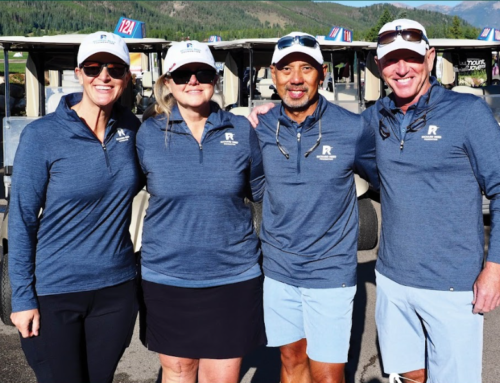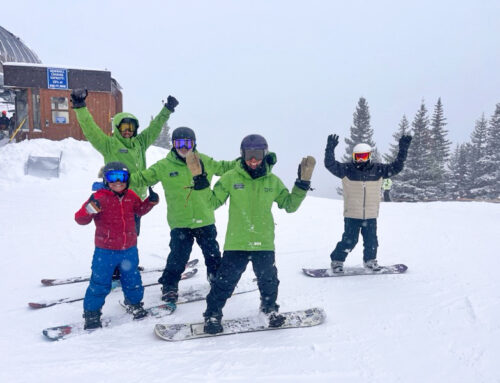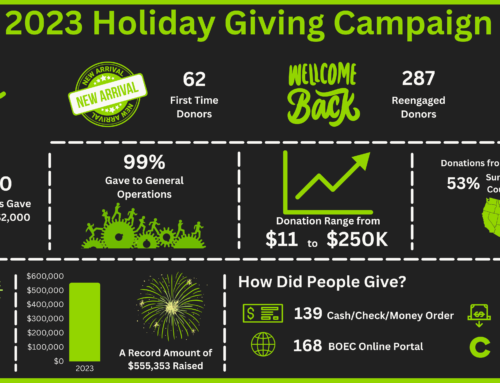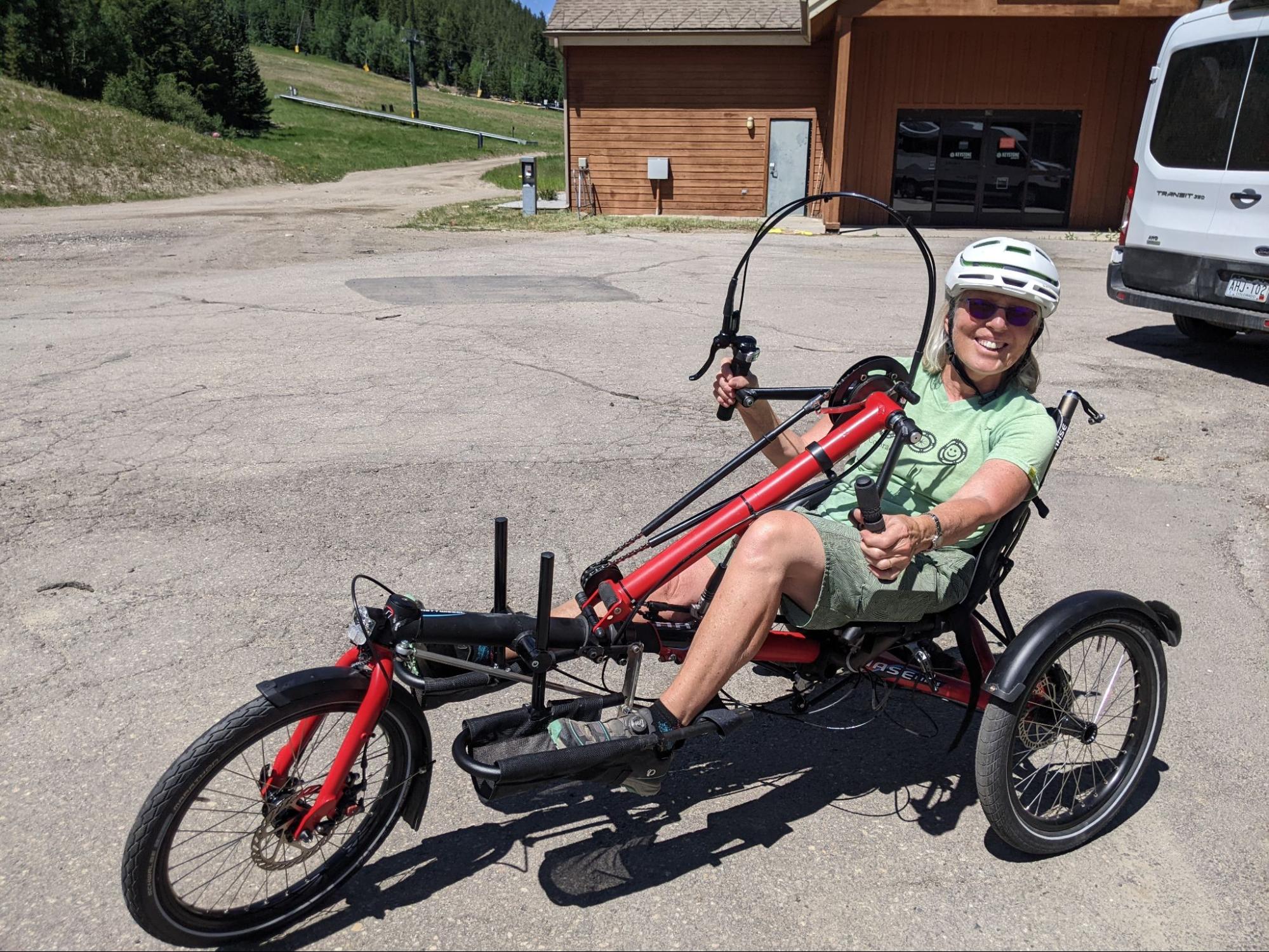
Joey, adaptive cycling volunteer, showing off the new Hase Kettwiesel handbike.
“From dedicated community response to a national movement,” the Christopher and Dana Reeve Foundation has been committed to supporting organizations that seek to improve the quality of life for people living with paralysis since 1982. In 2022, they proudly announced awarding $1,216,425 to 57 nonprofit organizations in the United States that improve opportunities, access, and day-to-day quality of life for families and individuals living with paralysis. BOEC was grateful to be one of those recipients.
Given that the Christopher & Dana Reeve Foundation is paralysis-focused, the Quality of Life grant funding they offer must be targeted to initiatives that will serve individuals living with paralysis, their families, and caregivers. Paralysis is defined functionally, as: “difficulty and/or inability to use arms and/or legs due to neurological conditions including but not limited to spinal cord injury, traumatic brain injury, stroke, cerebral palsy, multiple sclerosis, ALS, etc.”
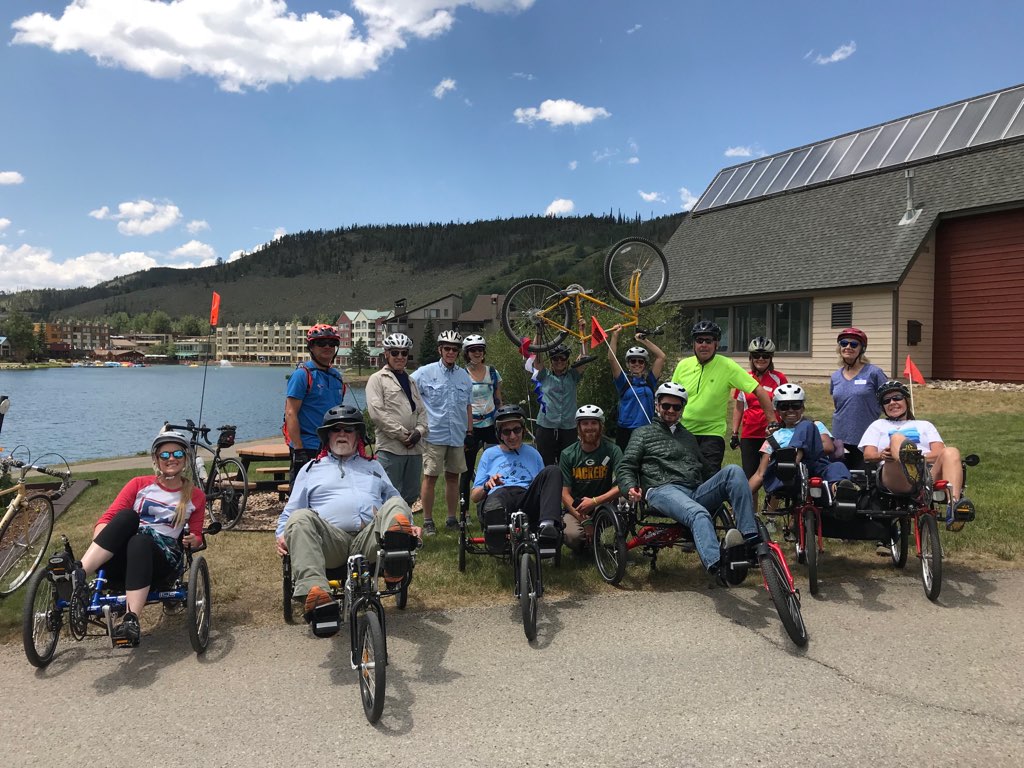
Adaptive cycling at Keystone.
Dedicated to outdoor recreation and an experiential education curriculum, Breckenridge Outdoor Education Center (BOEC) serves approximately 300 individuals living with paralysis annually equalling 17% of the total participants served. In 2022, BOEC received a grant of $10,702 from the Christopher & Dana Reeve Foundation to purchase a new Hase Kettwiesel Handbike, enhancing BOEC’s capacity to support individuals living with paralysis in the adaptive cycling program.
Various groups of individuals with limited mobility participate in BOEC’s Wilderness Program each year and greatly enjoy the adaptive cycling program which operates out of the Keystone Adaptive Center. The program opens annually in June (or as soon as the trails open/snow melts) and runs through the end of September. A cycling day includes riding on recreation paths around Keystone, CO, and along the Snake River in the heart of the Rocky Mountains.
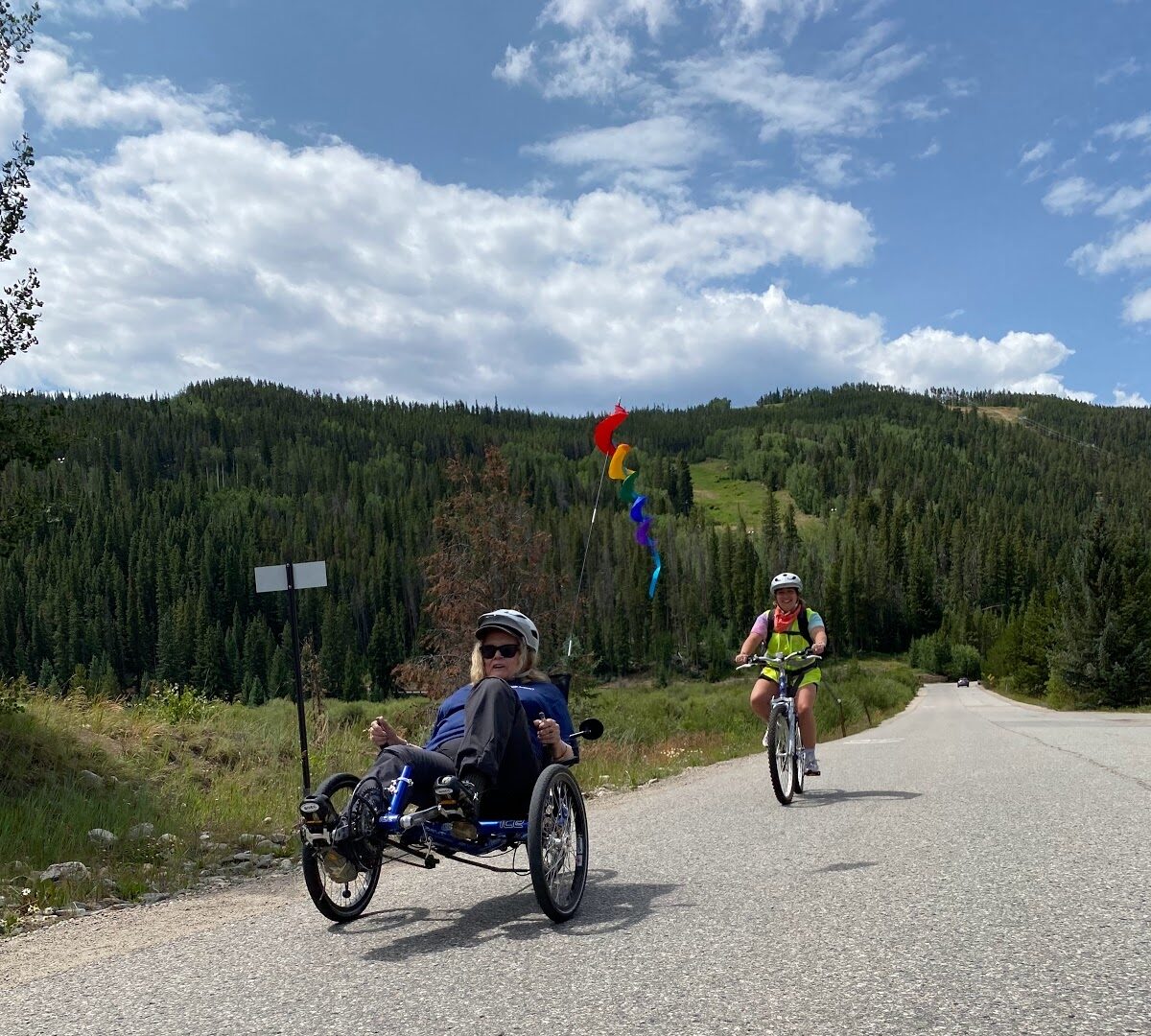
Adaptive cycling with the Brain Injury Alliance group from the Keystone Adaptive Center.
For the user experiencing paralysis, particularly in the lower half of the body, the Hase Kettwiesel Handbike is an ideal bike to start with as it is specifically designed for individuals who need to sit up and use their hands to power the cycle. It is also ideal for those who have experienced difficulty or are unable to ride other adaptive bikes such as the recumbent or upright bike. This handbike is extremely versatile, and for participants who are experiencing weakness, we are able to attach it to another bike so it becomes a tandem and the experience can be less taxing and enjoyed together.
Adaptive cycling is the most popular activity for this group of participants, and the BOEC Wilderness Program continues to welcome more and more groups based on demand who are requesting participation in the adaptive cycling program. The generous funding of a new Hase Kettwiesel Handbike directly addressed our need for more equipment to serve this population who all want to engage in cycling activities together.
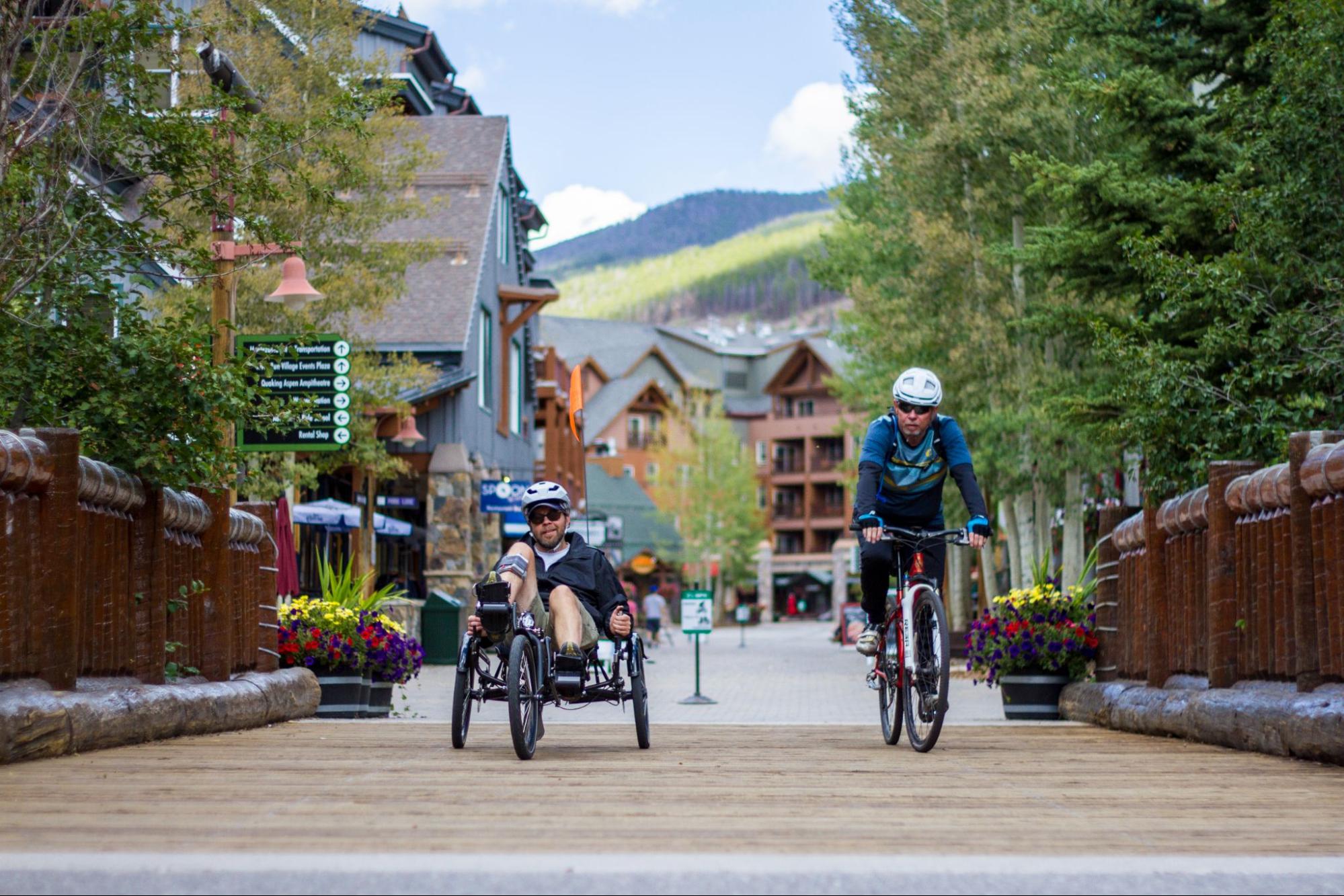
Cruising in an adaptive cycle on a ride through Keystone village.
Participant feedback indicates the adaptive cycling program is “beyond fun” and “paramount to their personal growth and transference into their everyday lives.” The real-life experiences we’ve observed in our courses confirm that our adaptive cycling program is having a positive impact on the lives of the people we help who are living with paralysis. Thanks to support from the Christopher and Dana Reeve Foundation we were able to achieve the following impact:
1) Introduced to the sport of cycling and the possibility to ride during participant’s time or open the door for trying new things and learning how to adapt in this world.
2) Reminded our participants how important physical fitness and mobility are to their health and they can take advantage of this through adaptive cycling.
3) Showed how cycling can be a great way to rebuild independence.
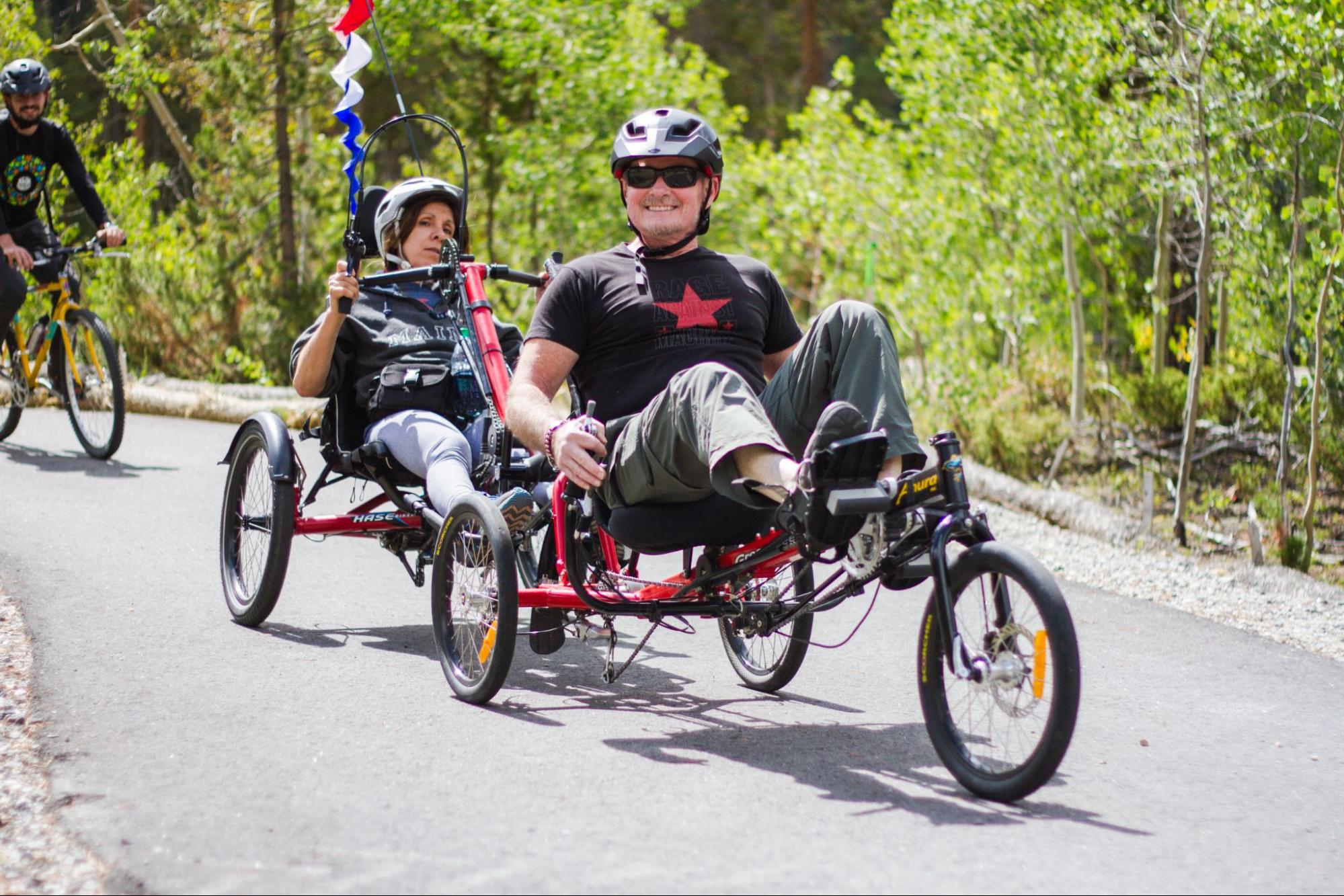
Tandem cycling on a Hase cycle can be a great, low stress option for participants.
BOEC staff worked with longtime cycle partner, Angletech to order the new Hase Handbike and they dropped the brand-new bike off as soon as we had the funds to purchase it! This would not have been possible without the kind contribution of the Quality of Life grant from the Christopher & Dana Reeve Foundation. We are now on the second summer of integrating the handbike into BOEC’s adaptive cycling programming and look forward to many years of positive impact through cycling for our participants living with paralysis.
To learn more about BOEC’s Adaptive Cycling Program, check out the story about amazing volunteers, Margie and Joey in this month’s “It’s the People Who Make BOEC Special” story.

